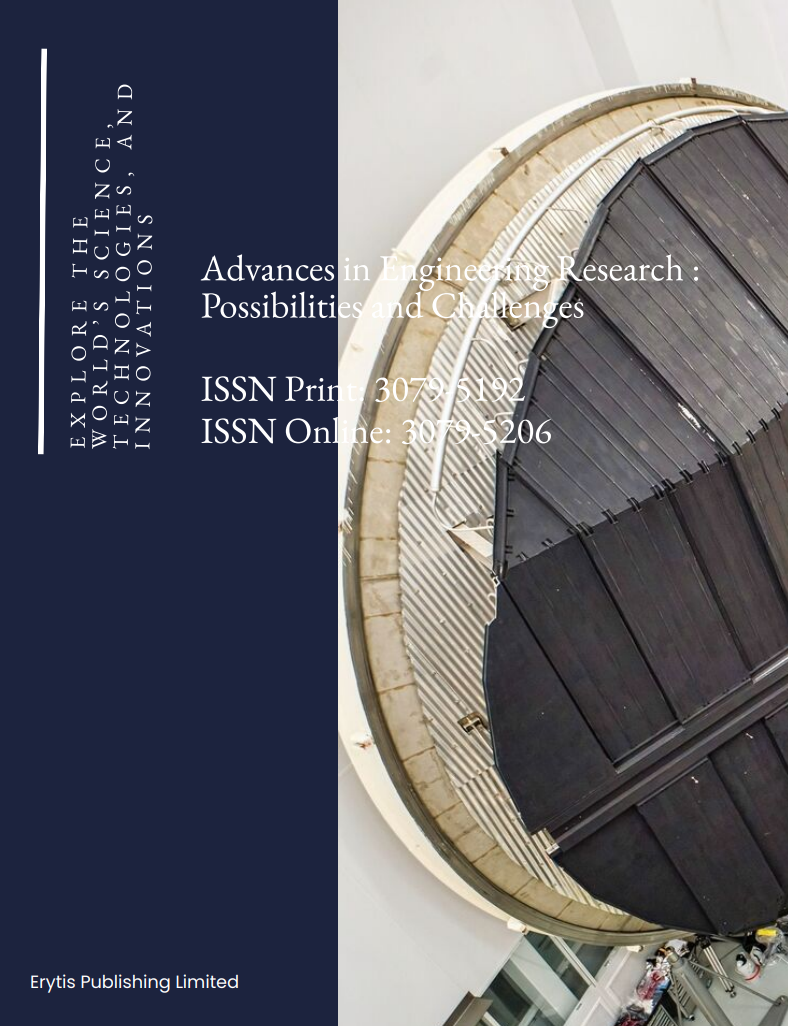Multivariate Data Fusion and Health Analysis of Coal Processing Facilities
DOI:
https://doi.org/10.63313/AERpc.9058Keywords:
Coal processing plant, Multi-data fusion, LSTM health status prediction, Long Short-Term Memory Network, Optimization of maintenance decisionsAbstract
This paper presents a comprehensive health diagnosis and predictive maintenance management system based on multi - source data fusion. Firstly, the research constructs a data acquisition framework covering multi - source sensors such as vibration, temperature, and pressure. Wavelet transform and empirical mode decomposition are employed for signal processing, and multi - dimensional features in the time domain, frequency domain, and time - frequency domain are extracted. Subsequently, the local preserving projection algorithm is introduced to achieve effective dimensionality reduction and visualization of high - dimensional features. At the diagnostic level, a fuzzy clustering - fuzzy integral fusion diagnostic algorithm based on fuzzy measure theory is innovatively proposed to address the challenge of composite fault identification. At the predictive level, by constructing a degradation feature evaluation system encompassing correlation, monotonicity, and robustness, the self - organizing map network is used to fuse multiple features into a comprehensive health index, and the long - short - term memory network model is utilized to accurately predict the evolution trend of the equipment's health status. Finally, based on the health status assessment and remaining useful life prediction, a full - life - cycle predictive maintenance strategy is formulated, and an intelligent maintenance decision - support system is designed.
References
[1] Xiaopeng Xie, Wei Feng, et al. Study on Condition Monitoring in Petrochemical Equipment Using Oil Analysis Technology[J]. Petrochemical Technology, 2018, 47(8): 23-29.
[2] Huihui Li, Linfeng Gou, et al. Intelligent Fault Diagnosis of Aeroengine Sensors Using Im-proved Pattern Gradient Spectrum Entropy[J]. International Journal of Aerospace Engi-neering, 2019, 2019: 1-15.
[3] V. Venkatasubramanian, R. Rengaswamy, et al. A review of process fault detection and di-agnosis: Part I: Quantitative model-based methods[J]. Computers & Chemical Engineering, 2003, 27(3): 293-311.
[4] Y. Lei. Deep Transfer Diagnosis Method for Machinery in Big Data Era[J]. Journal of Me-chanical Engineering, 2019, 55(13): 1-8.
[5] J. Wang, X. Li, Z. Chen, et al. Attention-based multi-sensor fusion for autonomous sys-tems[J]. IEEE Transactions on Neural Networks and Learning Systems, 2021, 32(8): 3456-3468.
[6] Y. Li, J. Zhang, K. Wang, et al. Bayesian inference for multi-sensor data fusion in intelligent systems[J]. Expert Systems with Applications, 2019, 128: 245-258.
[7] Y. Chen, Z. Liu, X. Wang, et al. Support vector machine based multi-sensor classification for fault diagnosis[J]. Mechanical Systems and Signal Processing, 2019, 132: 244-259.
[8] Q. Wang, X. Liu, Y. Chen, et al. Adaptive filtering algorithms for robust multi-sensor data fu-sion[J]. IEEE Transactions on Signal Processing, 2020, 68: 3142-3155.
[9] César L. Melchor-Hernández, F. Rivas-Dávalos, S. Maximov, et al. A model for optimizing maintenance policy for power equipment[J]. International Journal of Electrical Power and Energy Systems, 2015, 68: 331-340.
Downloads
Published
Issue
Section
License
Copyright (c) 2025 by author(s) and Erytis Publishing Limited.

This work is licensed under a Creative Commons Attribution 4.0 International License.















